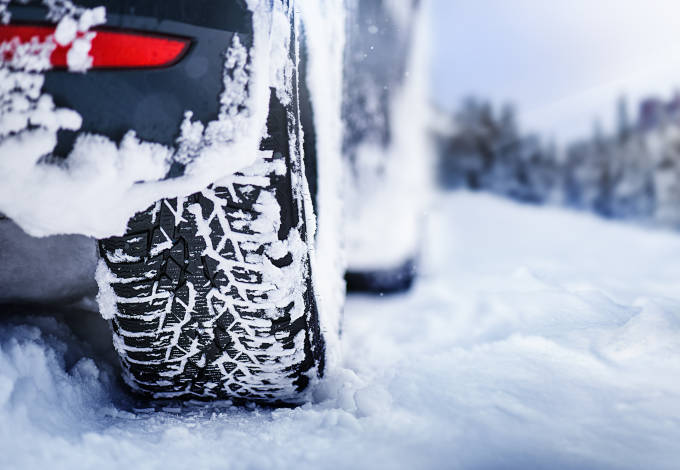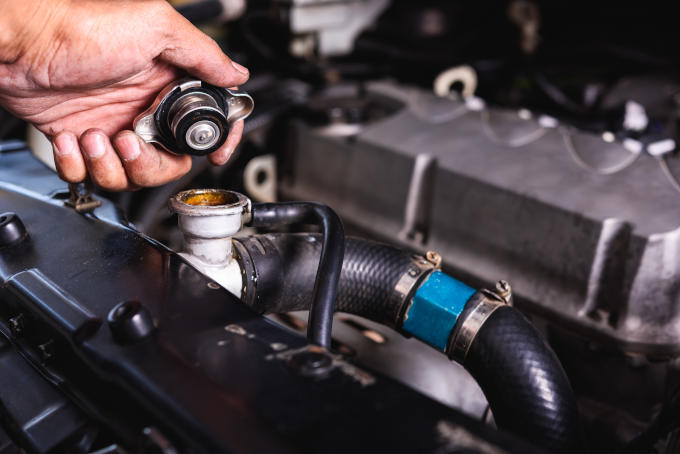During the chilliest winter months, your transmission will start to feel the strain of the cold. Let's take a look at what you can do to ensure it stays on the road.
What is a Transmission?
Your transmission is the connection between the engine and the driveshaft. It's the part of the car that allows you to change gears and contains a lubricating fluid with various intricate moving parts. This means the transmission is particularly vulnerable to damage and excess wear during the coldest months of the year.
What Unique Problems Does Cold Weather Cause?
When the temperature outside takes a nosedive, your transmission works harder and is susceptible to heavier wear and tear. Here are the most common transmission issues you may experience during the winter:
- Transmission Leaks: This happens because the sealing materials in your transmission will contract in extreme temperatures.
- Thickened Fluids: Just because your fluid isn't frozen solid does not mean it's operating as intended. If it approaches its freezing point, it will not flow as easily, and performance could be compromised.
- Repeated Shifting Issues: Because the transmission takes care of gear shifts, any issues with it will impact your ability to accelerate.
- Delayed Overdrive: Overdrive is the highest automatic gear and allows your car to drive more efficiently at high speeds over long distances. If your transmission's performance is impaired, overdrive will take longer than expected to kick in.
- Water Damage: While the seals in your transmission contract when they get cold, water expands. If water gets into your transmission and freezes, it can cause cracking, resulting in a ruined transmission and a high replacement bill.
How to Prevent Transmission Issues in Winter
You can do several things prior to winter to allow your car to perform at its best throughout the cold season.
Regular Maintenance
The more maintenance you do on your vehicle, the better condition it will be in. If you notice anything that's not quite right, get it looked at right away. This can save you time, money, and effort in the long run.
Check Your Fluids Before Winter
When your transmission approaches freezing temperatures, the transmission fluid will be less effective as a lubricant than before. This problem will be more significant if you have worn out or burnt fluid in need of replacement.
Get Your Seals Checked
Leaking seals allow fluid to escape and water to enter. Leaking transmission fluid will reduce your transmission performance, while water will expand at freezing temperatures, potentially causing permanent damage and resulting in a costly repair bill.
Park Inside Where Possible
If you can keep your vehicle out of the harsh elements, you're making things a lot easier for yourself.
How Can Your Driving Style Protect Your Transmission?
When transmission issues occur, they’ve likely been building for months. Driving style can be one of the key reasons a transmission may act up during the winter.
Consider driving slowly for the first 2-3 miles
To avoid shocking your transmission with a huge temperature surge, gradually warm your vehicle up by driving more slowly the first couple of miles in the morning. This also includes trying to avoid unnecessary shifting wherever possible, especially if you're likely to get stuck in the snow.
Avoid prolonged idling as much as possible
Not only are there laws against idling for long periods in many states, but it also wastes a lot of fuel and can cause significant damage to a cold transmission.
Be proactive about washing your car
Things as seemingly harmless as a little bit of grease, moisture, or dirt buildup on the underside of your vehicle can put a far greater strain on the joints, seals, and gaskets in the transmission than you may realize.
Final Thoughts
Now that you've heard about how the cold winter months put an extra strain on your transmission, you're well equipped to keep a close eye on it over the months ahead. If you notice any of the symptoms from this list or if you have any questions or concerns, make sure to speak to a qualified mechanic sooner than later.










